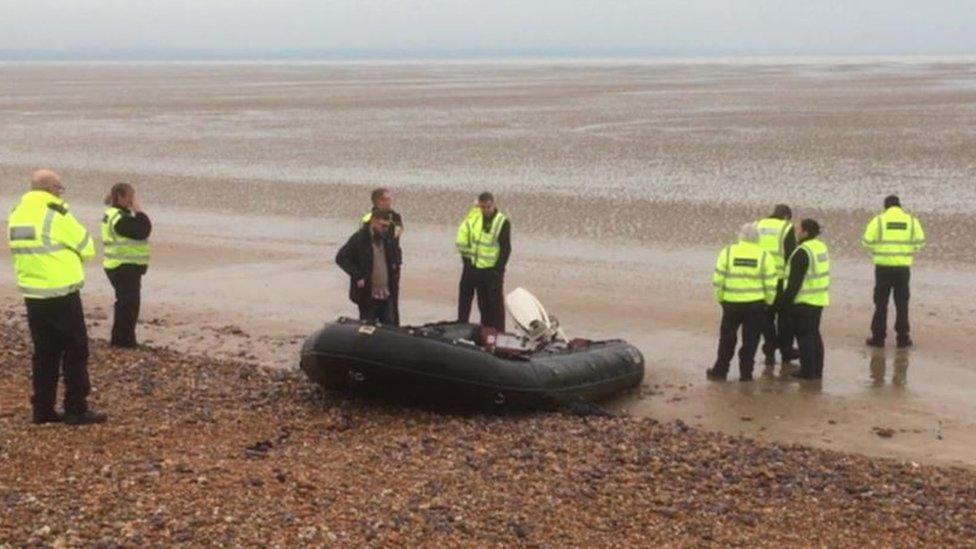Channel migrants: Five boats head to England each week
- Published
Migrants who cross the Channel from France
More than five small boats carrying migrants set sail for England on average each week this year, new figures show.
A total of 237 vessels were intercepted from January to October, the regional government in Calais said.
UK authorities brought 138 boats to British shores, while the rest were intercepted by the French.
A former coastguard said it was likely crossings would rise again next summer when conditions improved.
Governments on both side of the Channel have pledged to make crossings an "infrequent phenomenon" by the spring.
More than 1,460 people have crossed successfully this year, with 1,105 stopped in France, according to information released by the Pas-de-Calais prefecture.
The Home Office has declined to provide updated figures since July.
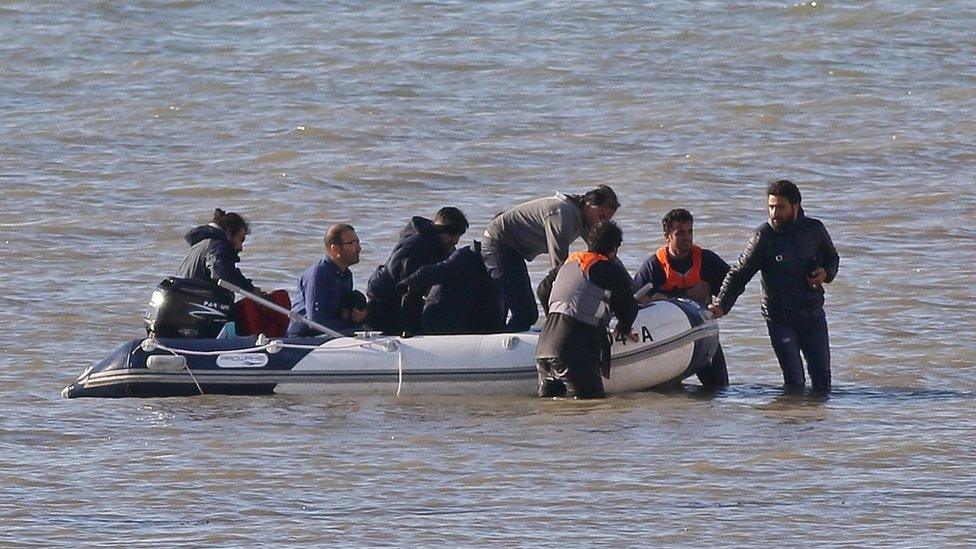
Many of the migrants who have made it across the Channel to the UK land on the Kent coast
Last month, more than 70 people made the journey successfully - mainly via Kent - despite the introduction of an "enhanced action plan" by British and French governments.
Home Secretary Priti Patel announced in October that patrols of French beaches would double to "stop these dangerous Channel crossings which are putting vulnerable lives at risk".
About 210 people made the crossing in September but in August the figure was more than 330.
Former coastguard Andy Roberts said he expected the crossings to continue and to spike again next summer, when conditions would be better.
Calais MP Pierre Henri Dumont, who chairs the French parliament's Brexit committee, said between five and 10 boats were being prevented from leaving France every night.
"We stop maybe 90% of the total of all the boats leaving the French coast," he said.
Figures from the Pas-de-Calais prefecture also revealed 11,952 migrants had been found hidden in lorries at the Port of Calais and a further 7,911 at the Eurotunnel terminal.
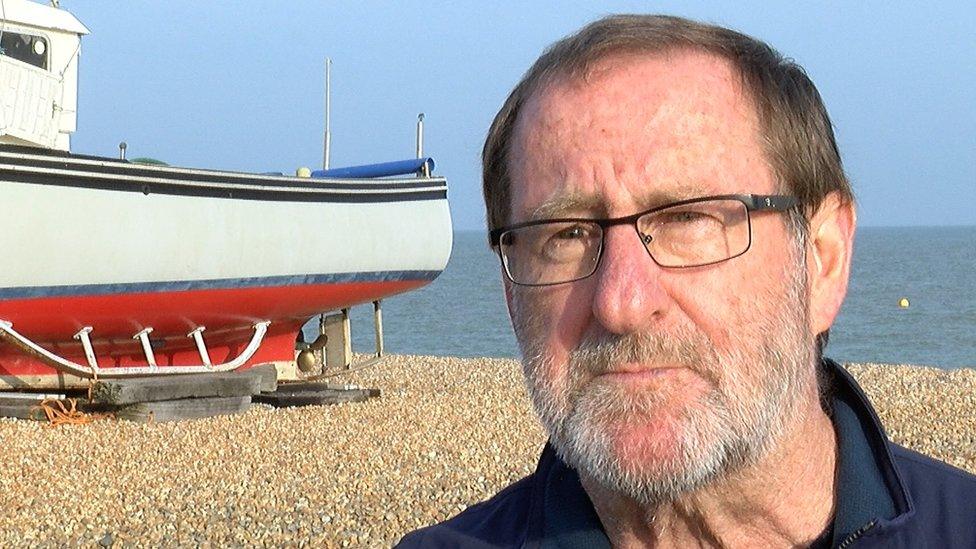
Former coastguard Andy Roberts predicts the numbers will spike again when the weather improves
- Published28 October 2019
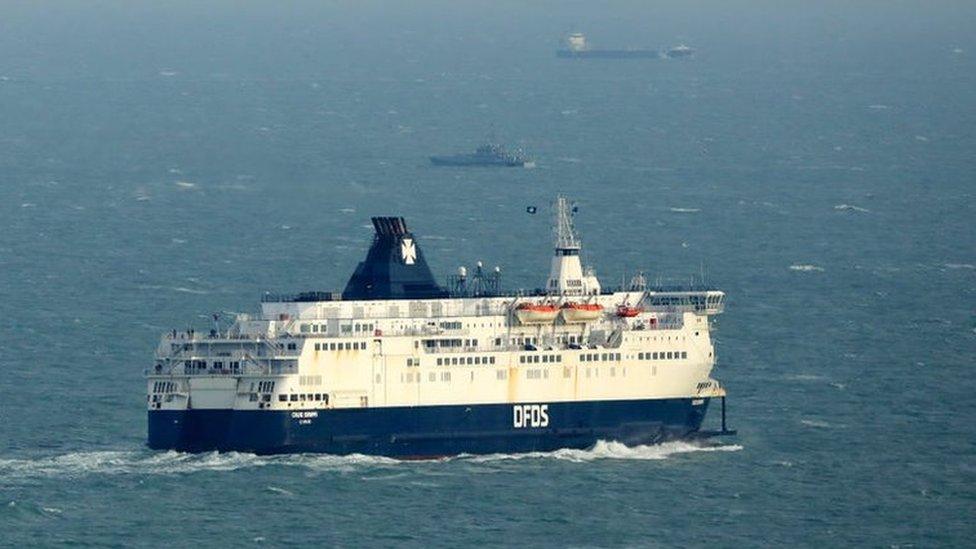
- Published9 September 2021
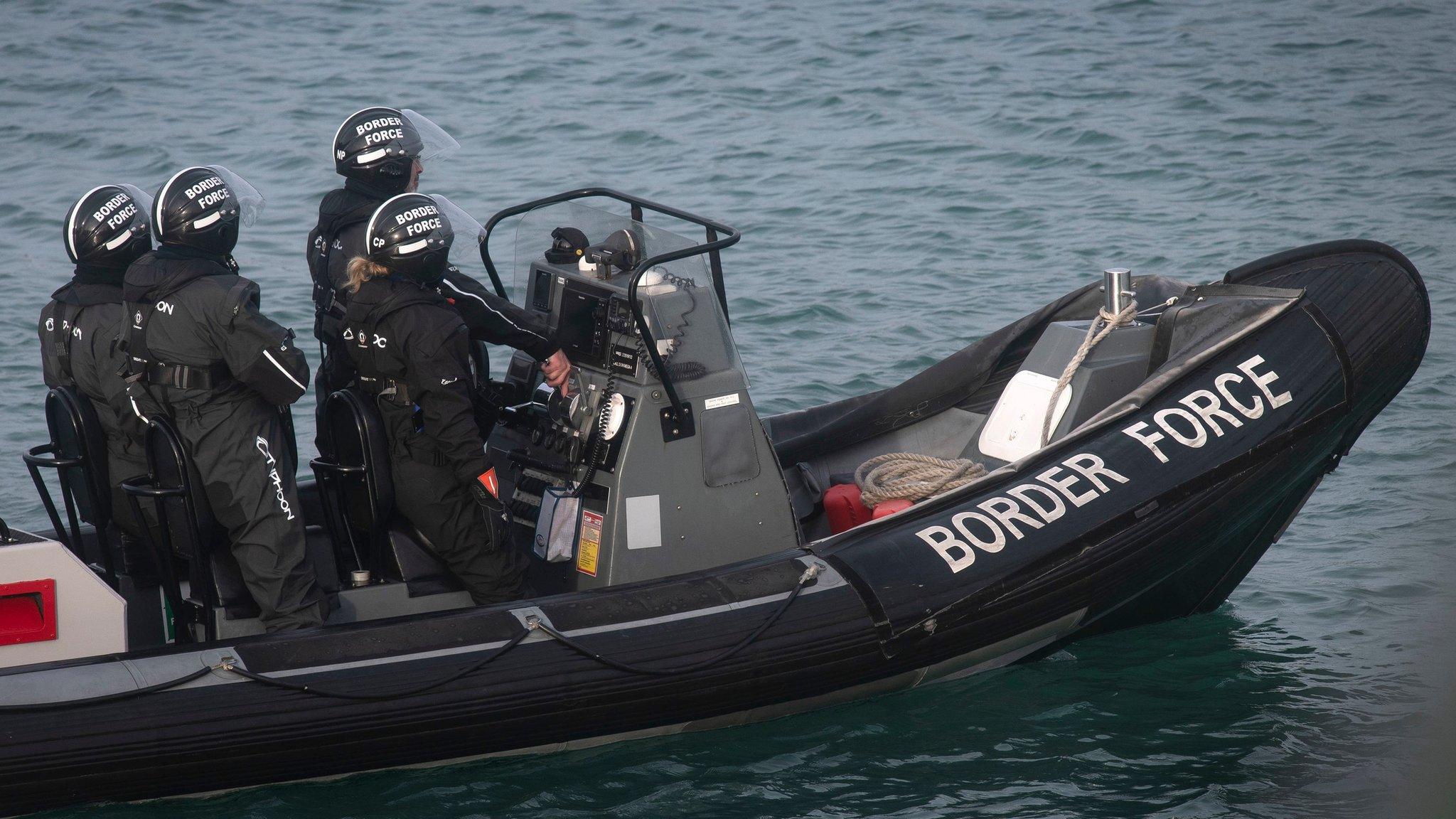
- Published31 August 2019
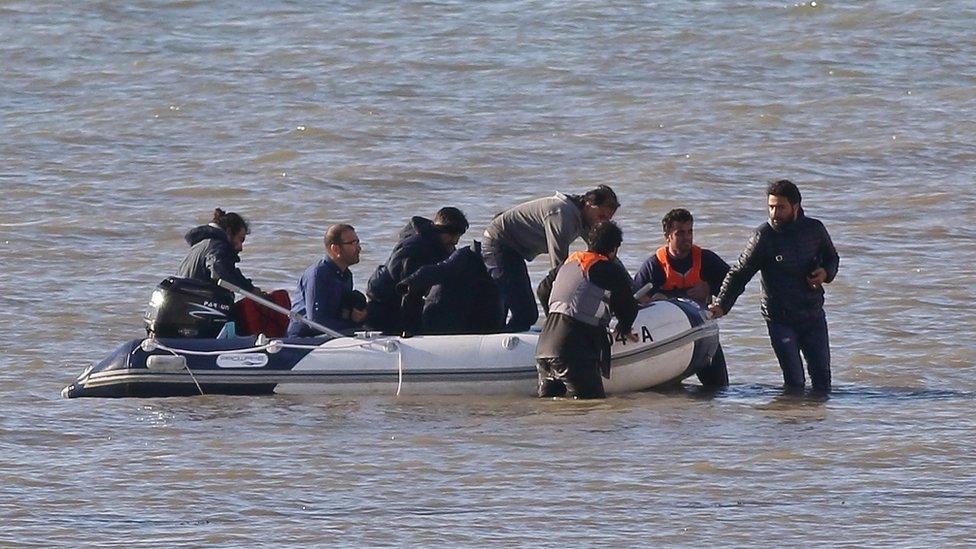
- Published23 August 2019
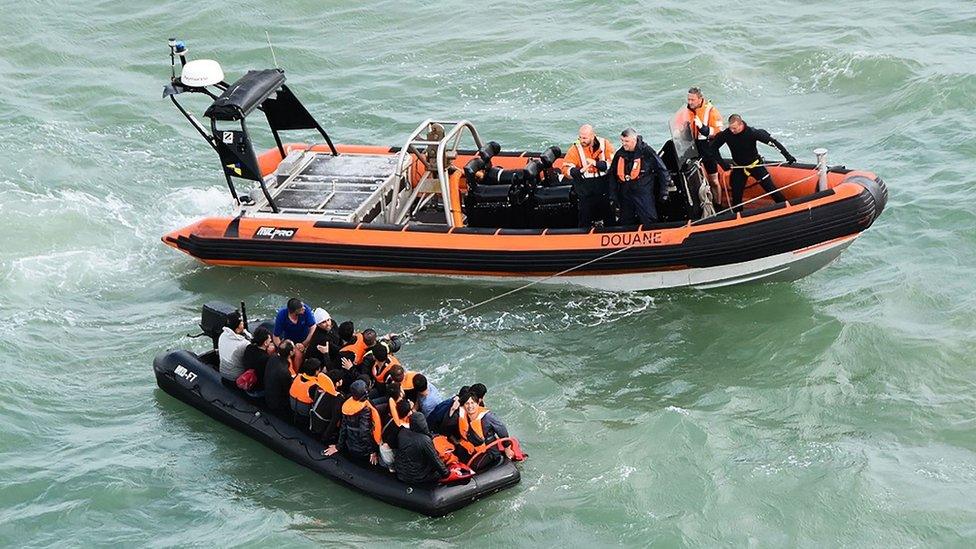
- Published31 December 2018
